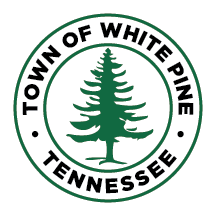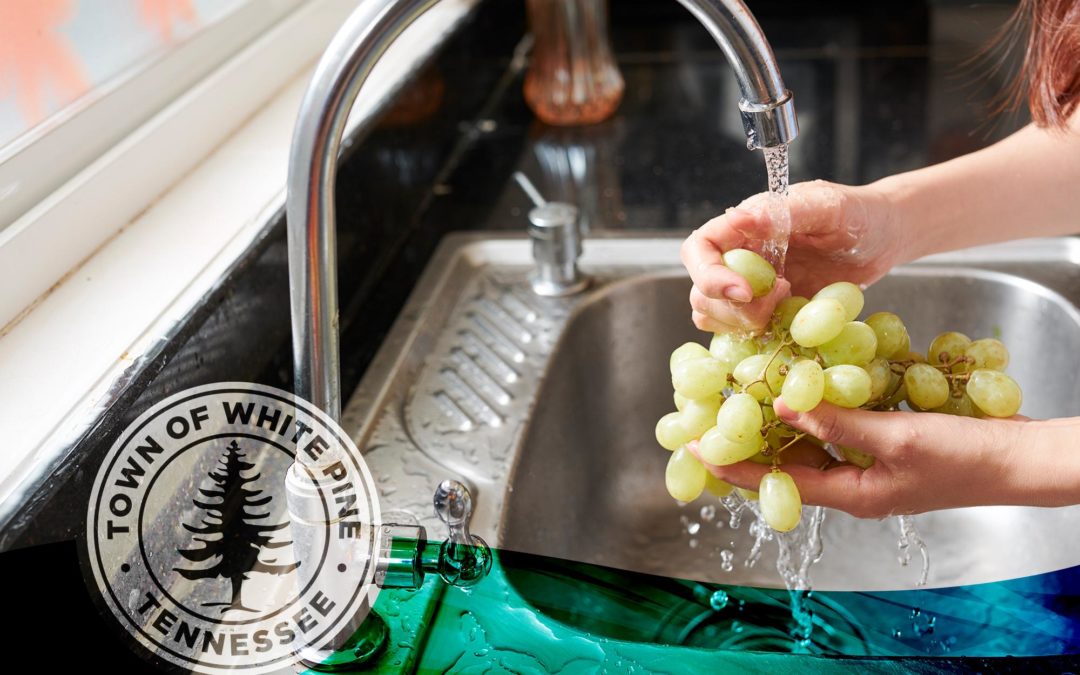Add up bathing and personal hygiene, using the toilet, washing dishes and clothes, watering plants, washing your automobile, and drinking water, and the average Tennessean consumes nearly 80 gallons of water per day in and around their home. With all Tennessee residents combined, that is a whopping 509 million gallons of water withdrawn and delivered every day for domestic use.
But, have you ever stopped to think about the White Pine water quality? Thanks to the hard work, dedication, and vigilance of the public works in White Pine, residents need not worry about water quality when getting an ice-cold glass of drinking water from the tap or bathing their kids.
While most people do not give a second thought about water quality when consuming water in White Pine, there are many internal and oversight agencies dedicated to ensuring your water is safe and healthy for use. Every year, a report is produced tracking White Pine water quality to ensure compliance with state and Environmental Protection Agency (EPA) requirements to test and report on water quality regularly. This article will cover what you need to know about White Pine water quality and answer the question, “How clean is our water?”
Where does White Pine Water Come From?
Now that you are thinking of the White Pine water quality, you probably have the logical next question: “Where does White Pine water come from?” Like most municipal water services in Tennessee, White Pine drinking water comes from treated groundwater. Groundwater is water that lies under the surface of the land where it travels through and fills openings in the rocks called aquifers. According to the US Geological Survey, 99% of the total rural population of the US gets its drinking water from groundwater.
Water from the water table is taken into a water treatment facility where it is filtered and disinfected, piped to storage, and finally distributed to your home. The White Pine water system, which serves nearly 4,000 residents, is composed of the water treatment facilities and the pipes and valves that deliver water to houses and businesses in our community.
Most Recent White Pine Water Quality Report
Per state and federal regulations, the Tennessee Association of Utility Districts tests and publishes the test results of water quality in every utility district of the state. These quality tests check for over 80 different contaminants that may turn up in drinking water, such as lead, copper, coliform bacteria (don’t ask), and nitrates, among others. In the most recent White Pine Water Quality Report, White Pine’s water was deemed safe to drink and meets all of EPA’s health standards.
The breakdown of the White Pine Water Quality report involves listing levels of specific contaminants and the likely source of contamination. Specifically, the recent water quality report states:
- Copper and lead levels are among the most pressing concerns when it comes to drinking water. These minerals derive from corrosion of household plumbing, erosion of natural deposits, and leaching from wood preservatives, all remained at 2018 levels.
- Nitrates, which come from runoff from fertilizer and erosion of natural deposits, remains within acceptable EPA levels.
- Sodium, which comes from the erosion of natural deposits, remains within safe levels.
Overall, White Pine’s water quality report showed no violations were evident in 2019 samples.
Do Your Part to Keep White Pine Water Quality High
While proper water treatment processes make up a large part of the high-water quality in White Pine, there are certain things that we can do as citizens to keep the water clean and safe. Here are a few ways you can contribute to the residential water quality:
Avoid Flushing Medicine: People sometimes depose of unused or expired medication by flushing them down the toilet. Flushing medications can be harmful to the water system as water treatment systems are not designed to remove the compounds in some medicines such as hormones and antidepressants. These endocrine-disrupting compounds found in these medicines have also been shown to affect the natural growth of aquatic species as well adversely. Instead, you can take your medications to an Unwanted Pharmaceutical Take-Back Location. In White Pine, you can drop off your unwanted medicine at the White Pine Police Department at 1548 Main Street.
Properly Dispose of Hazardous Waste: Avoid throwing out unwanted chemicals, paint, and oil with regular household waste. These chemicals can leach into the groundwater and show back up in our water system. Instead, contact the White Pine Sanitation Convenience Center at 865-719-7867 for more information on where to take your hazardous waste.
Use Pesticides, Fertilizers, and Herbicides Sparingly: Likewise, fertilizers and pesticides can also leach into the watershed where we derive our drinking water. While finding natural, organic alternatives are preferred, when this is not possible, use these chemicals sparingly.
Be Water Conservation Conscious: If every resident living in Tennessee reduced their shower time by just 60 seconds, it would save 3.5 billion gallons of water, enough to fill 5,300 Olympic-sized swimming pools. Conserving water helps reduce the load on water treatment facilities and gives water work planners more bandwidth to focus on further increasing the White Pine water quality.
White Pine Water & Sewer Department (TN) | Pay Your Bill
White Pine residents who have used the third-party service Doxo.com to pay their water bill in the past should pay close attention. DO NOT use Doxo.com to pay your water bill in White Pine. Instead, head to the Pay Utility Bill (LINK) service on White Pine’s official government website.
Conclusion
Providing safe, clean drinking water is of the utmost importance to White Pine, TN, councilmen, health officials, and public utility workers. Individuals looking for more information about your drinking water can contact Robert Hardy at (865) 674-2556. Residents interested in becoming more involved with water quality are encouraged to participate in Town Council meetings, which meet the first Tuesday of each month at Town Hall on Main Street.

